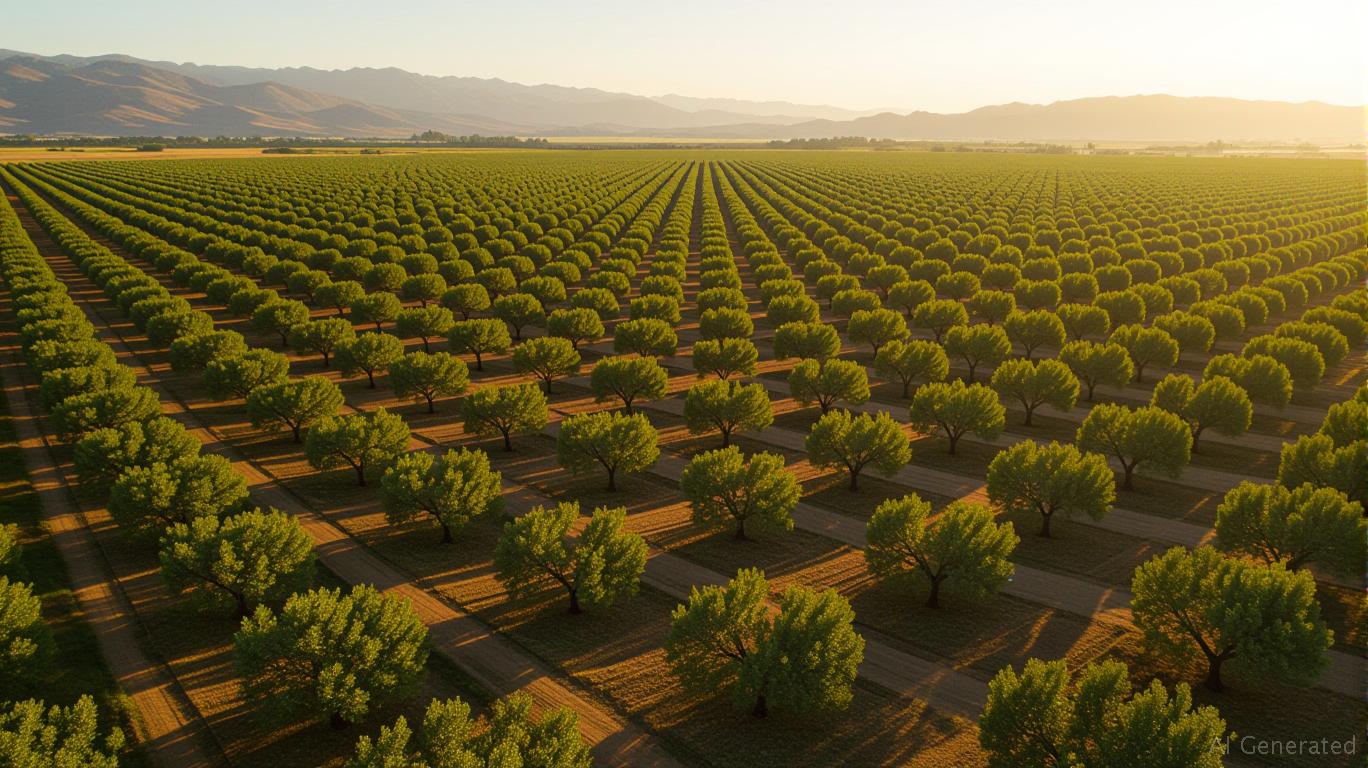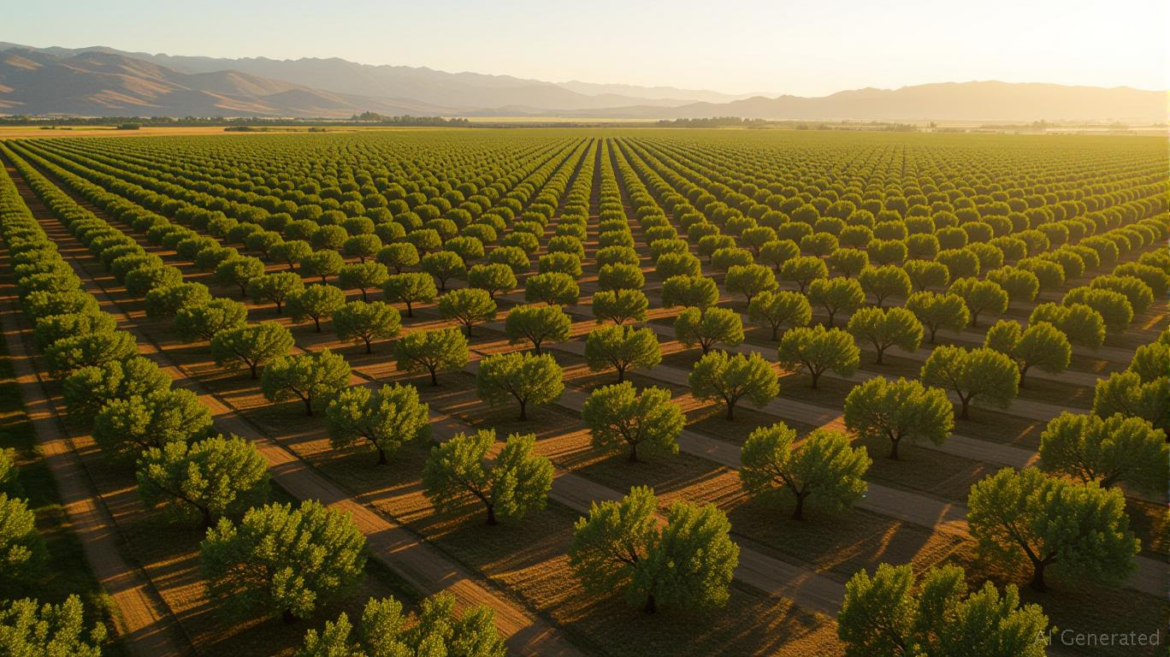The global demand for premium olive oil continues to surge, and Australian agribusinesses are positioned to capitalize. Among them, Cobram Estate Olives (ASX:CBO) stands out as a key player, with its FY2025 EBITDA outlook offering a compelling entry point for investors. While the agricultural sector faces familiar challenges—from climate risks to input cost pressures—the company’s strategic investments, robust operational momentum, and tailwinds from export demand create a compelling valuation opportunity.
A Strong Foundation: Cobram’s FY2025 Outlook
Cobram Estate has set an FY2025 EBITDA target of $115 million, a significant increase from FY2024’s performance. This forecast is underpinned by two critical drivers:
1. Sales Growth: Olive oil sales rose 13.5% in the first half of FY2025, with packaged goods sales up 20.9% in Australia and 18.5% in the US. The latter market is particularly crucial, where a 15% price increase has not dampened demand, reflecting the premium positioning of the brand.
2. Operational Efficiency: EBITDA jumped 75.4% year-on-year to $14.5 million in H1 FY2025, while cash from operations surged 36.2% to $43.6 million. These figures signal strong margin management and the success of cost-saving initiatives.

Strategic Investments Fuel Long-Term Growth
The company’s $52.1 million capital expenditure program is designed to lock in future gains. Key moves include:
– Land Acquisition: Purchasing 1,534 hectares in California to expand olive groves, with only 11% of U.S. groves currently mature. This ensures a steady supply of high-quality olives as the groves mature over time.
– Capacity Expansion: Upgrading its Boort milling facility to boost processing efficiency, directly supporting the US market’s rising demand.
– Operational Synergies: The acquisition of Leda Ag, a farming machinery business, reduces reliance on third-party logistics and improves cost control.
These investments are critical. With Australia expecting a record 15.3 million-litre harvest in 2025 (up 10.2% from 2023), and U.S. groves maturing steadily, Cobram is well-positioned to capitalize on a supply-demand imbalance in premium olive oil.
Valuation Context: Australian Agribusinesses in 2025
The broader Australian agribusiness sector is in a phase of transition. While export-driven companies (like Cobram) benefit from high global commodity prices, productivity growth remains sluggish, and climate risks loom. However, Cobram’s focus on premium products and strategic U.S. expansion places it in a stronger valuation bracket:
– Export Orientation: 72% of Australia’s agricultural output is exported, and Cobram’s U.S. sales now account for over a third of its revenue. This geographic diversification reduces reliance on any single market.
– Premium Pricing Power: Unlike bulk commodities, premium olive oil allows for value-based pricing, shielding margins from input cost volatility.
– Sustainability Credentials: As global consumers prioritize eco-friendly products, Cobram’s investment in efficient milling and land management aligns with ESG trends, potentially enhancing long-term investor appeal.
Risks and ConsiderationsClimate Sensitivity: Australia’s olive harvest is weather-dependent, and a poor season could disrupt supply. Debt Levels: The $40.8 million debt facility increase raises leverage, though cash flow appears sufficient to manage obligations. Competition: The premium olive oil market is fragmented, but Cobram’s scale and brand recognition provide a competitive edge. Data-Driven Perspective: Where Does CBO Stand?
Cobram’s stock currently trades at a market cap of A$900.7 million, with a “Buy” technical signal and a price target of A$1.98. While the lack of explicit sector-wide P/EBITDA multiples complicates direct comparisons, the company’s FY2025 EBITDA guidance implies a forward P/EBITDA of ~8x, which is in line with global agribusiness peers in high-growth, premium segments.
Investment Thesis: A Strategic Buy with Upside
Cobram Estate’s combination of strong fundamentals, scalable investments, and a niche in the premium olive oil market makes it a standout opportunity. Key catalysts for further upside include:
1. A robust Australian harvest in 2025, which could exceed FY2024’s already strong results.
2. U.S. grove maturation, which will reduce reliance on imported olives and lower costs over time.
3. Continued premiumization of consumer demand, particularly in North America and Asia.
For investors seeking exposure to Australia’s agribusiness sector, CBO offers a balance of growth, valuation, and resilience. While risks exist, the company’s execution to date suggests it is well-equipped to navigate them.
Recommendation: Consider accumulating a position in CBO at current levels, with a target price of A$2.10–A$2.30 over the next 12–18 months, contingent on EBITDA delivery and market sentiment toward agribusiness stocks.
This analysis is for informational purposes only. Investors should conduct their own due diligence and consult with a financial advisor.

